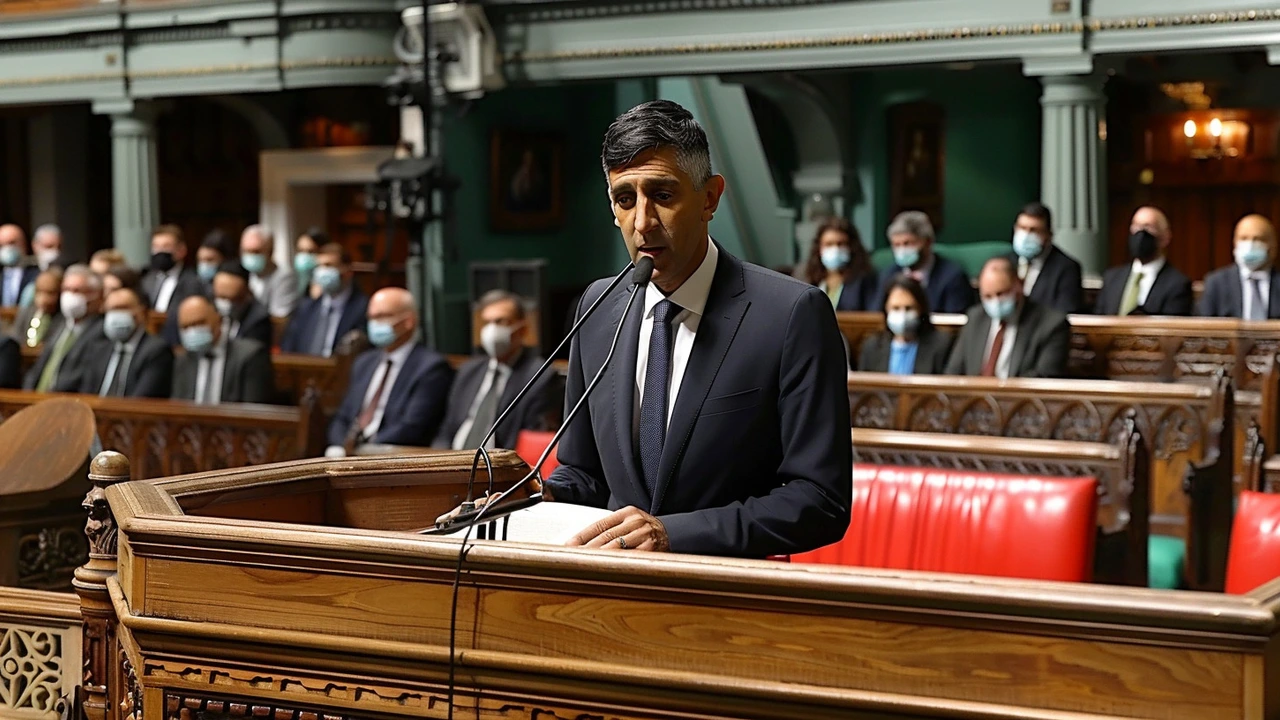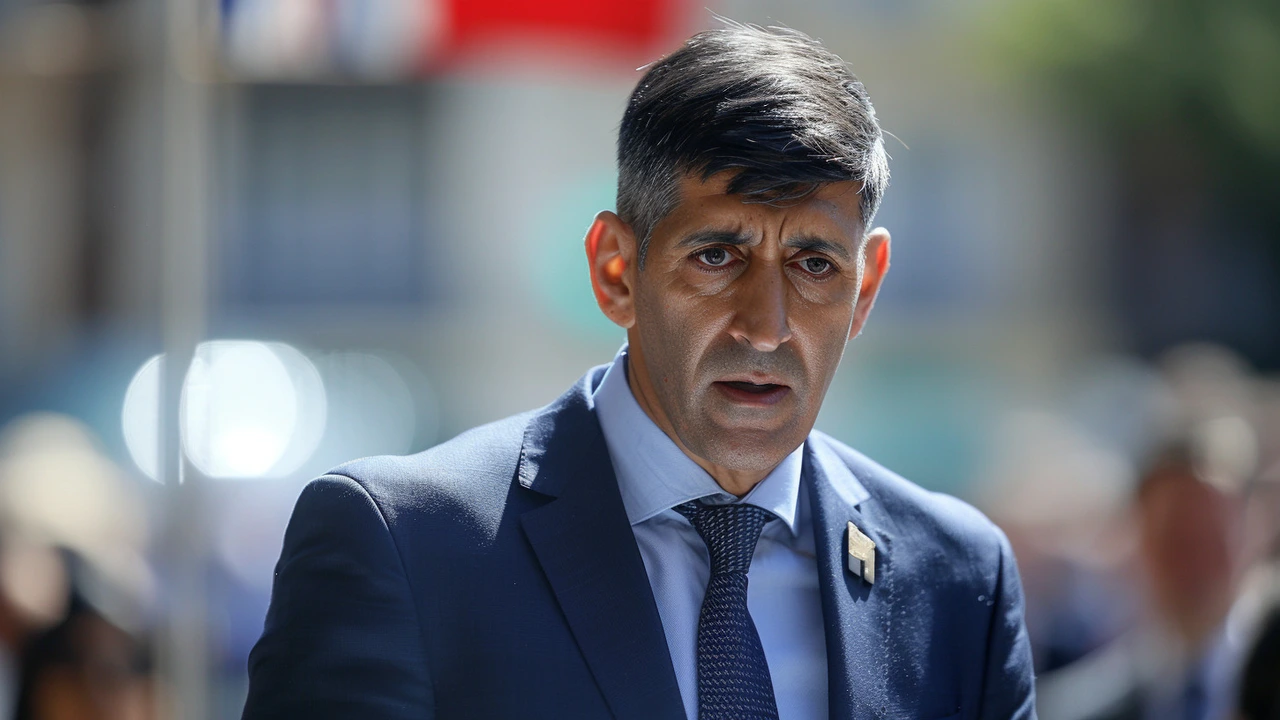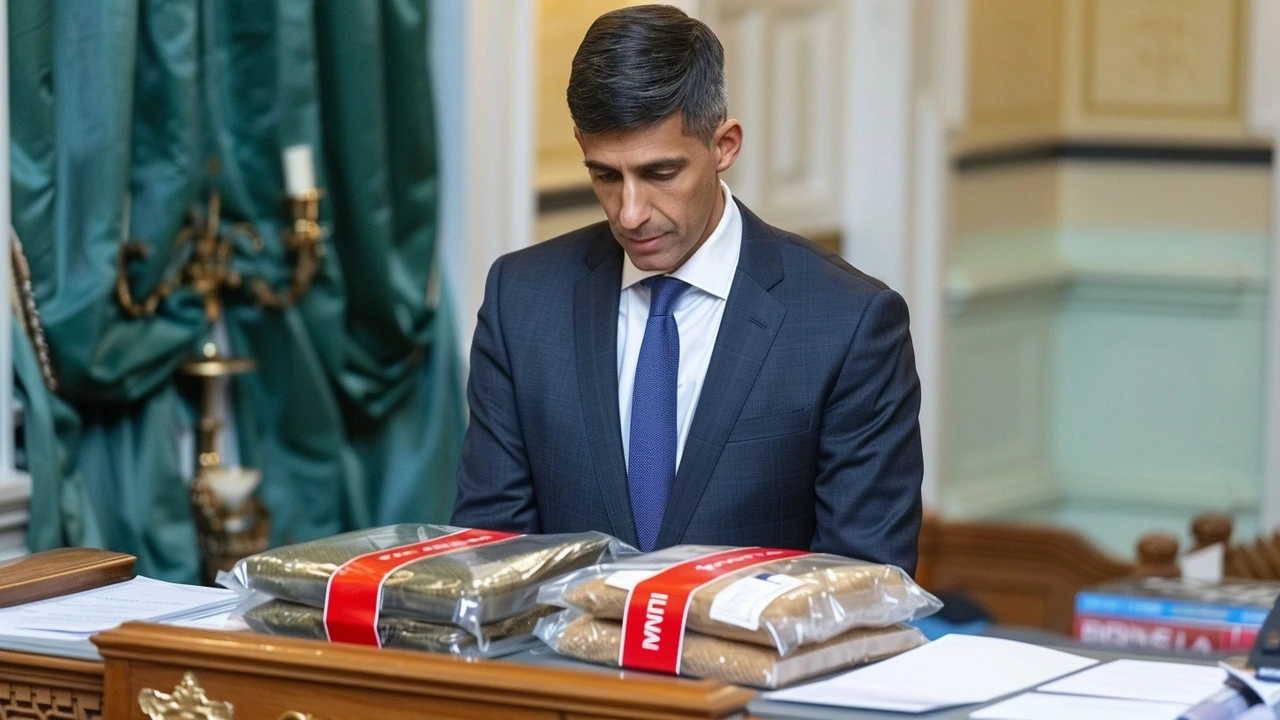Rishi Sunak's Bold Gamble
In a surprising move, UK Prime Minister Rishi Sunak has announced a general election for July 4, despite polls suggesting a probable defeat for his Conservative Party at the hands of the opposition Labour Party. This decision has left political analysts and the British public alike scrambling to make sense of Sunak’s strategy. While the announcement might appear to be a high-risk maneuver, it underscores the Prime Minister’s recognition of the precarious position in which he and his party find themselves.
Declining Popularity and Strategic Timing
Sunak's popularity has been on a downward trajectory, with numerous polls indicating that the Conservative Party is facing an uphill battle. This decline in support can be attributed to several factors, including internal party divisions and high-profile scandals that have plagued the party. Rather than delaying the election and risking further erosion of public trust, Sunak has opted to call for an early election. By doing so, he hopes to avoid being portrayed by opponents as evasive or cowardly. This tactical decision aims to seize the moment and attempt to consolidate what support remains.

Economic Signs of Recovery
The UK's economy has shown some promising signs of recovery, which Sunak is likely to leverage in his campaign. Recently, the International Monetary Fund (IMF) upgraded the UK's growth forecast, citing positive economic indicators. Additionally, inflation rates have started to normalize, further bolstering the narrative of an economic resurgence. Sunak's supporters argue that his economic policies have played a significant role in this recovery, and they hope that this will translate into electoral support.
Controversial Policies and Setbacks
Despite the economic gains, Sunak's tenure has not been without its controversies. His flagship immigration policy has faced fierce opposition and criticism, with many arguing that it is deeply flawed and ineffective. Additionally, Sunak's proposed smoking ban has sparked intense debate and backlash, further complicating his administration's position. These policy missteps have provided ample ammunition for his political adversaries, who are eager to highlight these failures in the run-up to the election.

Internal Divisions and Past Scandals
The Conservative Party has been marred by internal strife and a series of scandals that have damaged its public image. The fallout from the Brexit referendum continues to cast a long shadow, with lingering divisions within the party over the UK's future relationship with the European Union. Furthermore, the controversy surrounding illegal parties held during the Covid-19 pandemic has undermined the party's credibility. These issues have only compounded the challenges facing Sunak and his team as they prepare for the upcoming election.
A Battle of Personalities
The upcoming election is shaping up to be a contest between two very different personalities: Rishi Sunak and Labour leader Keir Starmer. Sunak's campaign is likely to focus heavily on Starmer's perceived lack of principles and trustworthiness, particularly when it comes to matters of national security. By positioning the election as a choice between stability under his leadership and uncertainty under Starmer, Sunak hopes to sway voters in his favor.

Looking Ahead
As the election date approaches, the political landscape in the UK is rife with uncertainty. Sunak's decision to call an early election is a calculated risk that could either rejuvenate the Conservative Party or spell its downfall. With economic indicators showing promise but policy controversies and internal strife threatening to undermine his campaign, Sunak faces an uphill battle. It remains to be seen whether his gamble will pay off or if Labour will seize the opportunity to take the reins of government.

subhashree mohapatra
May 24, 2024 AT 18:55Sunak is basically playing Russian roulette with the electorate, hoping a burst of economic optimism will drown out every scandal he’s been tangled in. The polls are screaming defeat, yet he waves the “early election” flag like it’s a victory march. Voters aren’t stupid; they see the party’s internal bickering and the litany of Covid‑party fallout. By calling the vote now, he’s betting the public’s fatigue will work in his favor, but fatigue usually fuels backlash. The IMF upgrade is a nice headline, but it’s a thin veneer over months of shaky growth. His immigration crackdown has only deepened the divide, especially among younger voters. And the smoking ban fiasco? That’s just another bullet in the opposition’s free‑for‑all. The Conservatives are sprinting toward a finish line they might not even reach. If anything, this gamble could accelerate the collapse they’ve been trying to dodge. In short, the early election looks less like strategy and more like a panic button.
Mansi Bansal
May 24, 2024 AT 18:55It's worth remembering that political tides can swing fast, especially when economic signs look brighter. Sunak might be trying to lock in the IMF's good news before any downturn hits. While the controversies are real, some voters do prioritize stability over perfect policies. The election timing could force Labour to scramble their own narrative, giving the Tories a breather. Also, the cultural context in the UK is shifting; people are tired of endless drama and might welcome a decisive leader. Even if the move feels risky, it could re‑energize the base that’s feeling neglected. Let’s not discount the power of a well‑timed campaign that highlights those recovery points.
ajay kumar
May 24, 2024 AT 18:57Honestly, I think Sunak just wants to get this over with before the inflation thing gets worse. Everyone’s talking about the IMF upgrade, but most people are still feeling the pinch at the grocery store. If he can pull some good headlines now, maybe he can ride that wave for a bit. Still, calling an election in July feels like a hurry‑up‑sale on a broken product.
Sampada Pimpalgaonkar
May 24, 2024 AT 18:59Look, the Conservatives have been in a rough patch for a while, and the early election might actually give them a chance to reset before the next big scandal hits. The public loves a comeback story if it’s told right, especially when there’s a hint of economic recovery. It’s also possible that Labour isn’t fully prepared for a summer campaign, which could give Sunak a tactical edge. That said, the risk is huge – if the voters are still angry about the party’s past missteps, this could backfire spectacularly.
Chinmay Bhoot
May 24, 2024 AT 19:00Honestly, the only thing more predictable than Sunak’s blunders is his confidence that the public will just forget everything because of a shiny economic forecast. The party’s internal fights are on full display, yet he acts like it’s just a minor footnote. If voters see through that, we’ll be witnessing a classic case of hubris meeting reality.
Raj Bajoria
May 24, 2024 AT 19:02There’s a lot to unpack about this early election call. First, the timing aligns with a brief uptick in GDP growth, which the government is eager to showcase. Second, the inflation rate cooling off provides a comforting narrative that the economy is back on track. Third, the IMF’s upgraded forecast is being used as a headline hook, even though the underlying data is still mixed. Fourth, the Conservative Party is still nursing deep wounds from internal disputes over Brexit strategy. Fifth, the series of Covid‑era party scandals have left a lingering distrust among many voters. Sixth, immigration policy remains a hot button issue that continues to divide public opinion. Seventh, the proposed smoking ban controversy illustrates how policy missteps can quickly become political landmines. Eighth, the opposition’s ability to capitalize on these missteps will be crucial in shaping the campaign’s tone. Ninth, voter fatigue with constant political drama could either dampen turnout or push people toward a ‘change’ narrative. Tenth, the Summer election could suffer from lower voter engagement compared to a typical autumn schedule. Eleventh, the party’s grassroots machinery is scrambling to re‑energize volunteers after recent setbacks. Twelfth, media coverage is already framing this as a high‑risk gamble, which could influence undecided voters. Thirteenth, the election’s outcome will likely hinge on whether Sunak can convincingly link economic recovery to his leadership. Fourteenth, any new scandal surfacing in the next weeks could dramatically shift the momentum. Fifteenth, in the end, the gamble will either solidify a fragile resurgence or accelerate a historic defeat.
Simardeep Singh
May 24, 2024 AT 19:04Sunak’s gamble is a bold, if shaky, move.